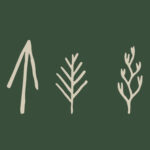Leap forward for red squirrel reintroduction on Scotland’s west coast
Red squirrels could return to the entire northern coastline of Scotland’s west coast Morvern peninsula and flourish again on neighbouring Ardnamurchan following reintroduction of the species by Trees for Life.
The rewilding charity has this spring released six red squirrels into broadleaf woodland on the remote Drimnin Estate overlooking the Sound of Mull, with backing from the landowners.
The arrivals will help bolster Morvern’s existing population of reintroduced reds, which has been growing since Trees for Life released 21 squirrels at Lochaline two years ago.
Sarah Woodfin, Trees for Life’s Red Squirrel Project Manager, said: “This new red squirrel population at Drimnin opens up a new chapter in this rewilding success story, which is offering hope for the long-term future of this much-loved and charismatic species.
“As long as tree cover continues to improve in the area, eventually these reintroduced reds should be able to move right around the coast all the way to neighbouring Ardnamurchan – helping secure a remnant population of red squirrels that has managed to hold on there.”
The new population of reds at Driminin has already been seen playing and feeding in the estate’s woodlands.
Rhonda Newsham, Drimnin Estate’s Visitor Manager, said: “We are tremendously excited to welcome these red squirrels, and feel honoured that Trees for Life and the volunteers from the squirrel donor sites have entrusted them to us.
“In this remote location, we hope the reds will be safe from many of the risks they can face elsewhere – with their offspring and those from neighbouring reintroductions able to thrive and create flourishing populations in woodlands right across the Morvern peninsula.”
Only an estimated 120,000 red squirrels remain in Scotland – their numbers decimated by reduction of their forest homes to isolated fragments, historic persecution, and lethal disease and competition from the introduced non-native grey squirrel.
Red squirrels remain missing from large areas of the Highlands and Islands, their last main UK stronghold safe from the greys. Although many woodlands in the region offer ideal habitat, the reds can’t reach these havens because they avoid crossing large open spaces.
Trees for Life’s reintroduction project gives the squirrels a helping hand by carefully relocating small numbers to suitable woods from areas where numbers are healthy – mostly around Inverness, Loch Ness and the Moray coast. The charity never takes more than two squirrels per 200 hectares, and regularly changes donor sites to ensure genetic diversity.
The charity has now released 235 red squirrels at 12 sites across the northwest Highlands since 2016. With the new populations breeding and expanding throughout available habitat, the releases so far should eventually lead to a total population of an estimated 5,300 squirrels.
The reintroductions in turn help Scots pine forests to naturally expand, because reds plant new trees by forgetting where they have buried their winter stores of nuts and seeds.
Community involvement and citizen science are key to the project. Local people offer donor sites, and report sightings and carry out supplementary feeding at the release sites.
With Scotland one of the world’s most nature-depleted countries, and many species facing extinction, Trees for Life is urging people to sign the Scottish Rewilding Alliance’s Rewilding Nation Charter at www.rewild.scot/charter – calling on the Scottish Government to declare Scotland a rewilding nation, committing to nature recovery across 30% of land and sea.

